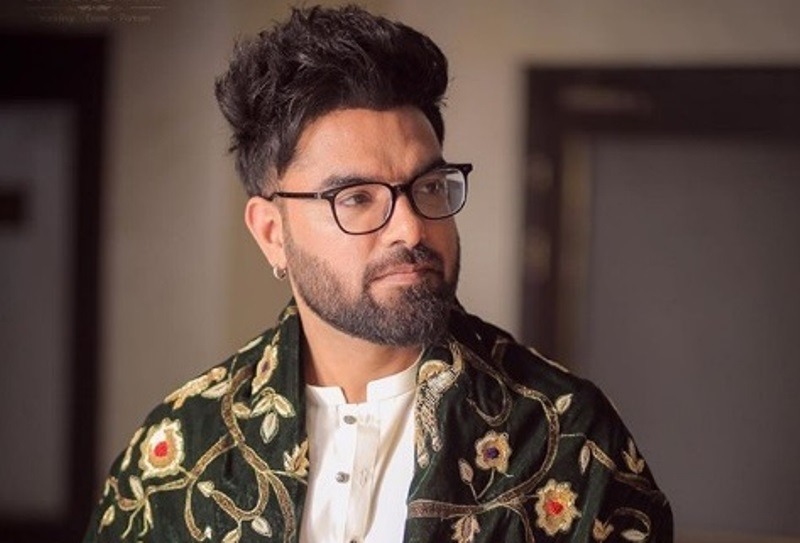Pakistani actor Yasir Hussain recently opened up about a much-needed controversial topic of abuse of women on national TV. The Javed Iqbal actor added that raising hands on women and humiliating them has become a norm for television.
He continued that the censor board is not doing much in this case, possibly because they are ‘too occupied’ due to films. However, he added, the depiction of assault on women being a common thing is a dangerous route.
Television shows play a vital role in influencing society and shaping young minds. If they are shown harmful content with such levels of abuse, they will start to think that hitting and assaulting women is nothing new.
Yasir Hussain Opens Up About Stereotyping on Women
Yasir Hussain shared his thoughts as a guest on the FWhy Podcast. he also spoke on the stereotyping of women based on their dressing, he said:
“What can I say about this? I am involved in an industry where if you want to show a modern girl, her hair will be short and she’ll be wearing jeans and a t-shirt. This is the criteria for being modern,” he said. “I’ve met many modern women who wear shalwar kameez, their thinking and actions are very modern but they wear shalwar kameez — it doesn’t matter. Secondly, if you want to show a lying, corrupt woman in a drama, her hair will also be short and she’ll be a smoker. We are stereotyping ourselves, whatever female characters I’ve written, they have been powerful.”
While giving examples of some of the projects, he started to talk about the depiction of women on TV. “Suddenly, our dramas have started depicting women like this. Because you can’t watch an entire drama of 26 episodes, so whoever will get a glimpse will say, ‘Do you see this girl? She’s so great, she’s cooking, taking slaps and not saying anything.’ You are showing such dramas yourself for TRPs, what is the need?”
Yasir Hussain continued that such shows create false love and hope in men that a woman will ‘love’ them if they continue to show power through violence.
“I’m shocked that the hero is shown to be this kind of man in films — but see, you buy the ticket to go see a film of your own volition, one show spanning 26 episodes is available in your house for free and it goes on for six months, this makes up your mind.
“You’re showing that a guy can stop his car anywhere on the road and snatch a daughter from her father saying, ‘I will take you away’. He’s marrying her forcefully, hitting her and then the girl is also falling in love with him. You are showing that if you inflict such violence on a woman, she will fall in love with you. How will she fall in love with you, dude? This is so wrong,” he exclaimed.
Pakistani Women Are Using Social Media to Empower Themselves & Speak Out
Yasir Hussain Spills the Beans on ‘Kabir Singh’
During the convo, Yasir Hussain brushed up on his thoughts about the controversial yet famous b-town hit Kabir Singh. He shared that the film showed similar content about an abusive relationship and its toxicity however it has an age restriction.
“The dramas on TV can be viewed by anyone and they’re free. A child can watch it and learn, as can an adult. Our entire censor board is fixated on films, there is no censor for TV. You can show anything on TV. A woman is getting beaten for the smallest of things, she is being humiliated and she’s loving her humiliator too. Our heroes are taking this to real life too and hitting their wives, they think what’s happening in dramas is right,” he concluded.
Impact of Violence on Younger Generations
The portrayal of women in media has been a topic of concern for a long time. The representation of women as victims of abuse, violence, and humiliation is particularly alarming. Many TV shows and movies depict women in such a manner, and it has a profound impact on the psychology of the younger generations who watch them. These depictions can have a negative impact on their attitudes towards women and their overall mental health.
The impact of media on the younger generation is significant, and it shapes their perception of reality. Young people who watch shows that depict women as victims of abuse and humiliation can develop negative attitudes towards women. Such shows normalize the behaviour, and younger generations might think it is acceptable to treat women in such a manner. This normalization of abuse can lead to an increase in gender-based violence, bullying, and sexual harassment.
Moreover, constant exposure to such content can have an adverse effect on the mental health of younger generations. Studies have shown that viewing violent or abusive content can cause anxiety, depression, and even post-traumatic stress disorder. Young people who are exposed to such content at a young age may develop anxiety or depression, and it can have a long-lasting impact on their mental health.
Furthermore, the objectification of women in media is also a significant concern. Young people who watch shows that objectify women may develop an unrealistic view of women’s bodies, leading to body shaming, eating disorders, and low self-esteem. The constant pressure to conform to a certain body type can cause young people to develop unhealthy habits and even lead to serious health problems.
What are your thoughts on this?
Share them with us in the comments below.
Stay tuned WOW360.
40% Women in Pakistan Have Experienced Physical or Emotional Violence: NCHR
